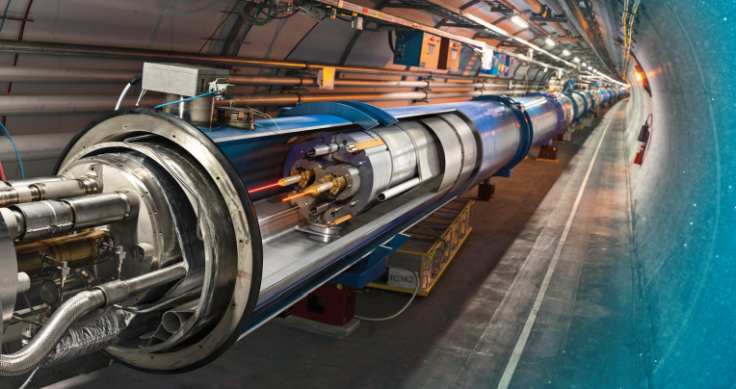CERN LHC Update: Large Hadron Collider Hits 2016 Run Target Of 2,220 Proton Bunches Per Beam

The Large Hadron Collider (LHC) has achieved this year’s target of 2,200 proton bunches in each of its circulating beams, the European Organization for Nuclear Research (CERN) announced in a statement Friday. The LHC, which is the world’s most powerful particle accelerator, still has two months left in this year’s run.
More protons per beam generate more collisions, which create more debris. Greater the amount of subatomic debris, higher the chances of finding a particle that is yet to be discovered.
At full intensity, each beam can contain nearly 2,800 proton bunches. However, this is a target that won’t be achieved this year, as the collider’s performance is currently limited by a “technical issue” in its Super Proton Synchrotron — the machine responsible for accelerating subatomic particles.
“Performance is excellent, given this limitation,” Mike Lamont, head of the operations team at LHC, said in the statement. “We’re 10 percent above design luminosity (which we surpassed in June), we have these really long fills (where the beam is circulating for up to 20 hours or so) and very good collision rates. 2220 bunches is just us squeezing as much in as we can, given the restrictions, to maximize delivery to the experiments.”
While the latest run of the LHC has yielded more precise measurements of processes falling within the ambit of the Standard Model — a framework that describes three of the four known fundamental forces — and has provided observations of the famous Higgs boson at the unprecedented energy of 13 teraelectronvolts, it has drawn a blank insofar as the search for new particles are concerned.
In particular, a tantalizing “bump” in 2015 data at 750 gigaelectronvolts, which had been previously detected by the ATLAS and CMS detectors, did not resurface in the much larger 2016 dataset, suggesting that it was, in all probability, the result of a statistical fluctuation.
“We're just at the beginning of the journey,” CERN Director-General Fabiola Gianotti said in a statement released earlier this month. "The superb performance of the LHC accelerator, experiments and computing bode extremely well for a detailed and comprehensive exploration of the several TeV energy scale, and significant progress in our understanding of fundamental physics."
© Copyright IBTimes 2024. All rights reserved.





















